Irish National AI Meet 2025 opening speech
Opening speech for the Irish National AI Meet 2025, given on 18th September 2025 in the Galmont Hotel in Galway. I offered my viewpoint on how AI is reshaping work, business, society — and why Ireland must quickly choose between merely consuming foreign technologies, or vigorously participating in the future economy and pragmatically leading Europe’s AI future.
Although I went off-piste at points, I had a prepared speech. Here is the prepared version, and a recording of the same. Scroll down for a transcript and slides.
Transcript

AI isn’t the next chapter of the digital revolution. It’s a whole new book.

Many would say that we’ve left the information age and entered the generative age. AI doesn’t just automate work. It automates thought.
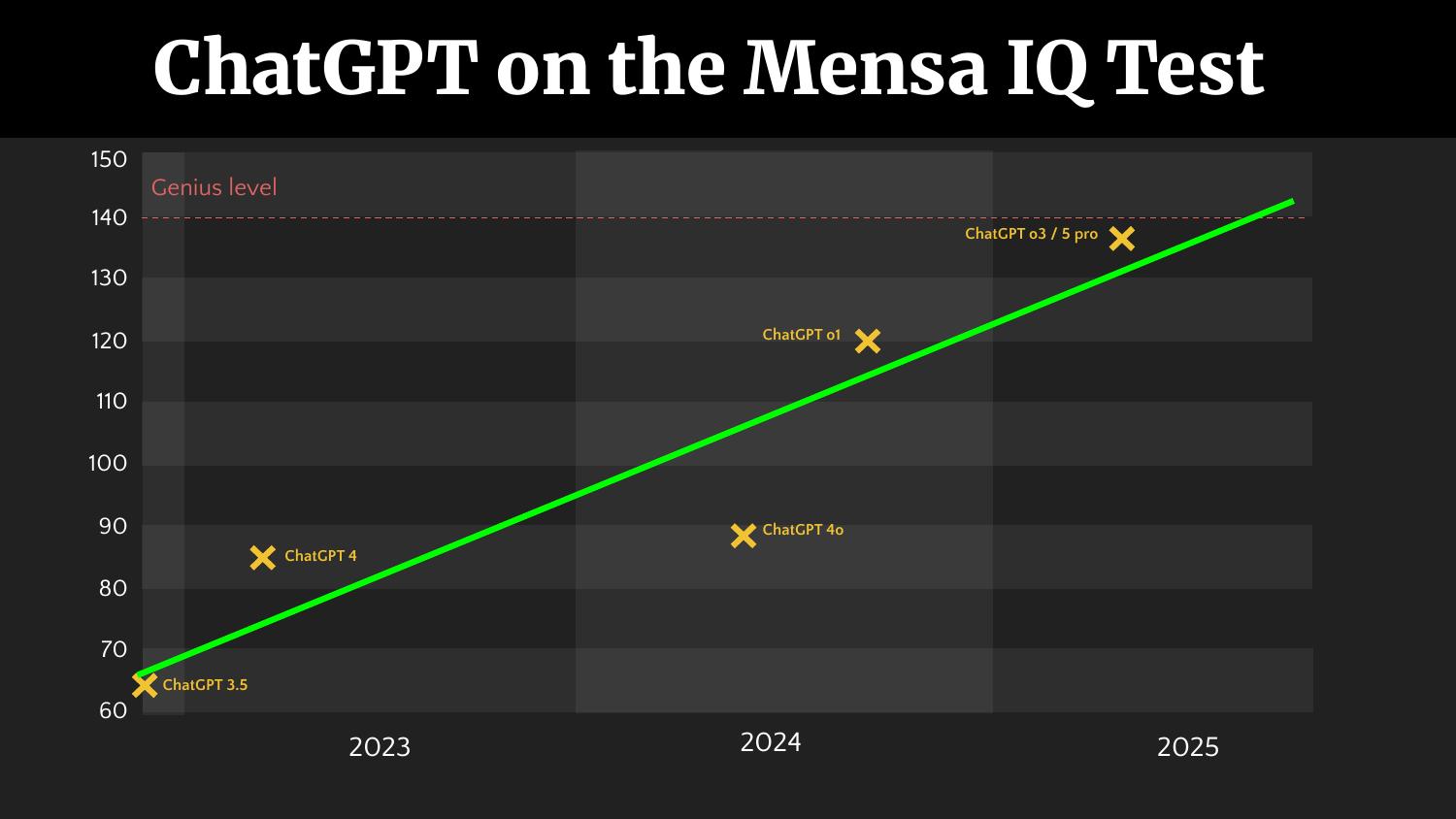
And it’s moving faster than anything we’ve ever seen. ChatGPT launched in November 2022. Now, not quite three years later, some AI models are touching genius level on the Mensa IQ test. They are already outperforming PhDs in some specialist fields. At this pace, AIs might well surpass all PhDs before anyone starting a doctorate today can do their viva.
That should make every policymaker, every business leader, and frankly every citizen sit up straight.
Ireland is at a crossroads. Maybe the EU too. We either grab this moment — vigorously, decisively — or we risk ending up at the receiving end of someone else’s revolution.
I’m a member of the Government’s AI Advisory Council, but I’m speaking as a citizen and a technology founder, as someone who is building an Irish AI company on the ground.
At Jentic, where I’m CEO, AI has changed our hiring plans in real time.
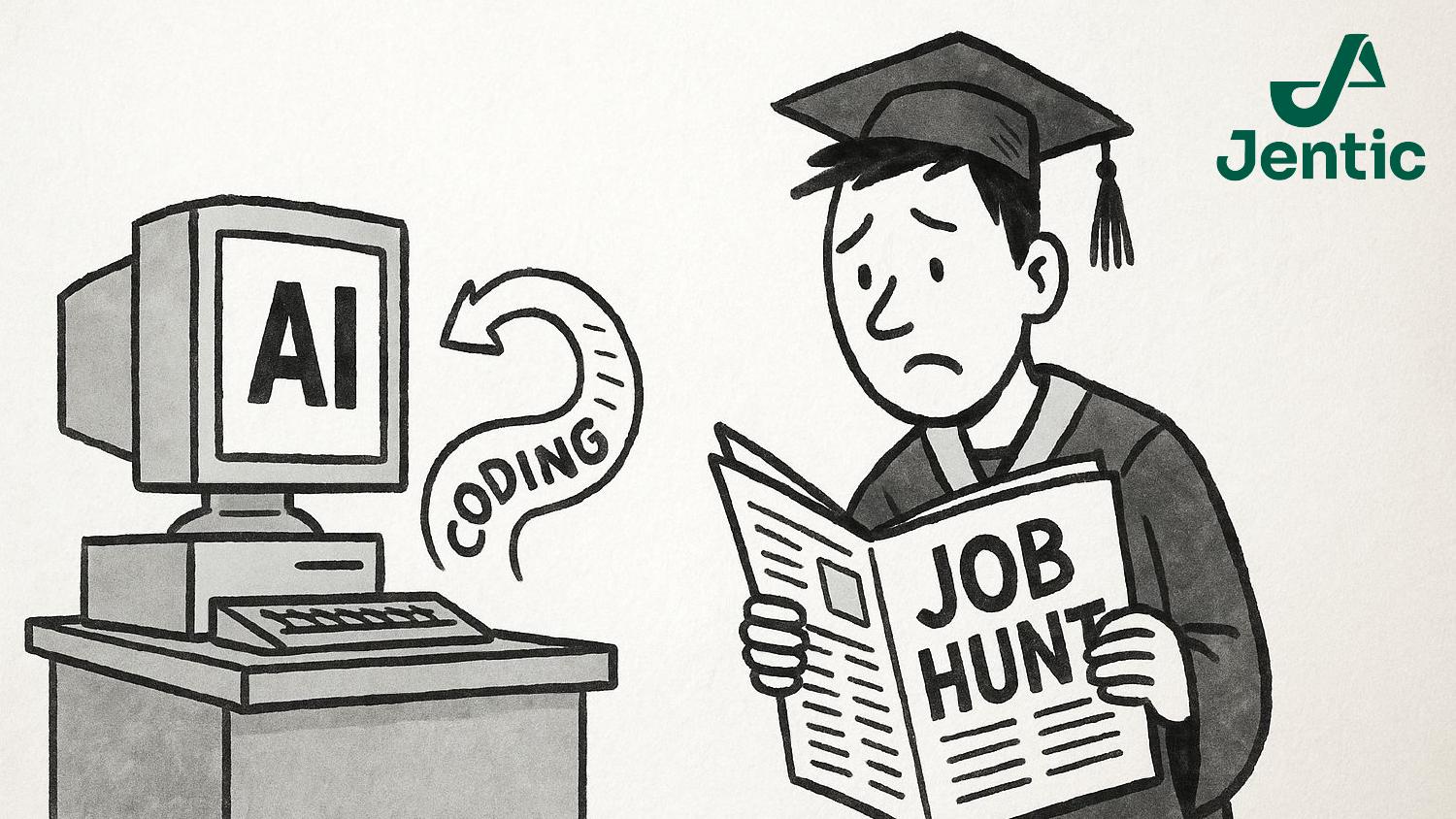
The traditional entry-level job for computer science graduates — coding — is simply gone. AI writes the code now. Humans are left with the higher-order work: diagnosing and fixing where the AI falls short, and doing the design and architecture.
This isn’t science fiction, it’s how my company operates today.
And it doesn’t stop with software. As a long-time organiser of a network of Irish technology founders, I’ve had thousands of conversations with entrepreneurs.
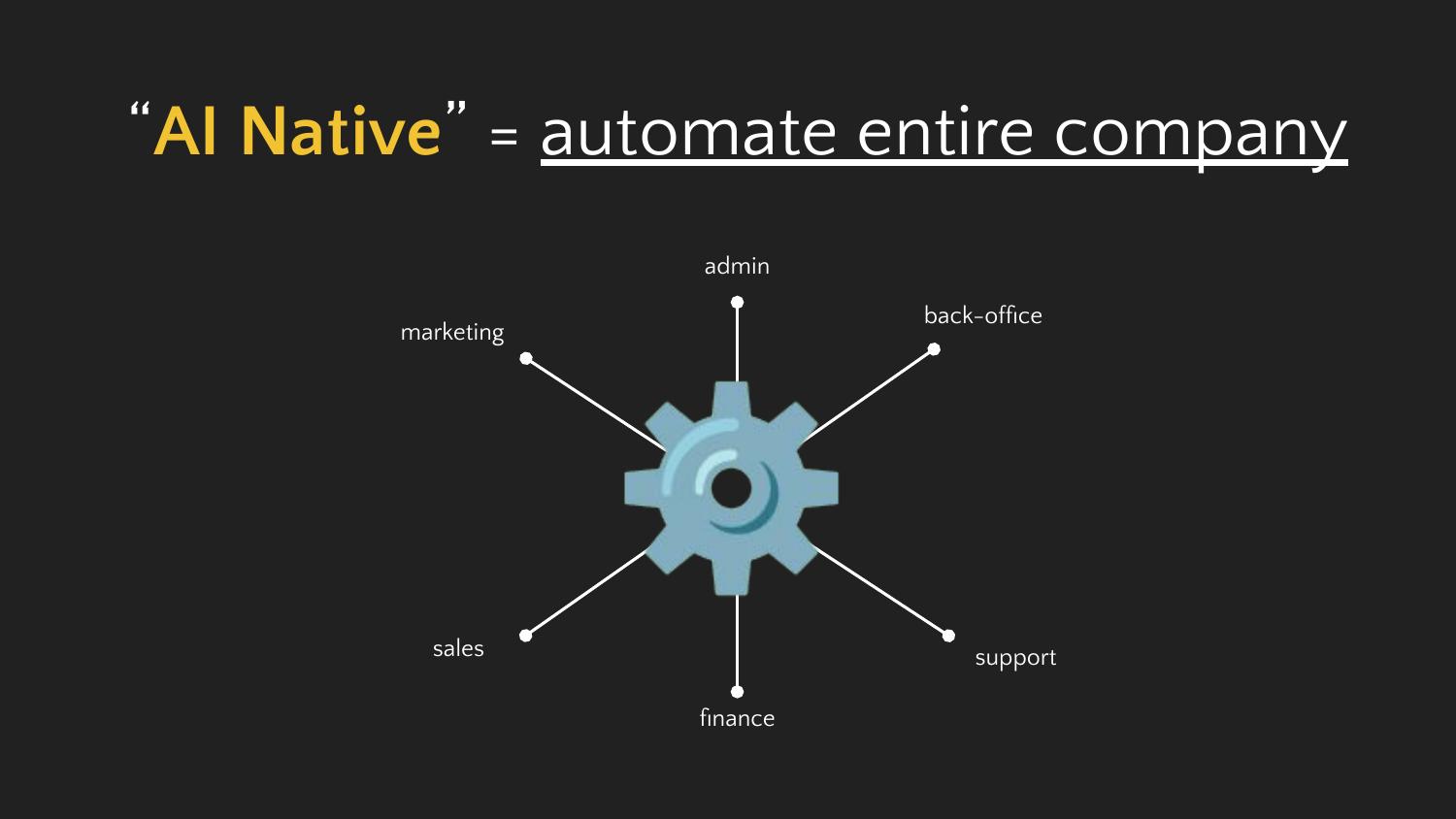
Today, those conversations are all about the “AI-native” company. If you’re not automating admin, back-office, support, research, sales — everything you possibly can — you will be undercut by the next company that does. Not in ten years, but in two.
That’s the world I live in.
Graduates are already feeling it. Law firms are gently cutting graduate intake. Computer science graduates are having a hard time finding jobs. IBM announced it won’t fill nearly eight thousand back-office positions, because they expect AI to do the work. Online customer service was an early casualty.
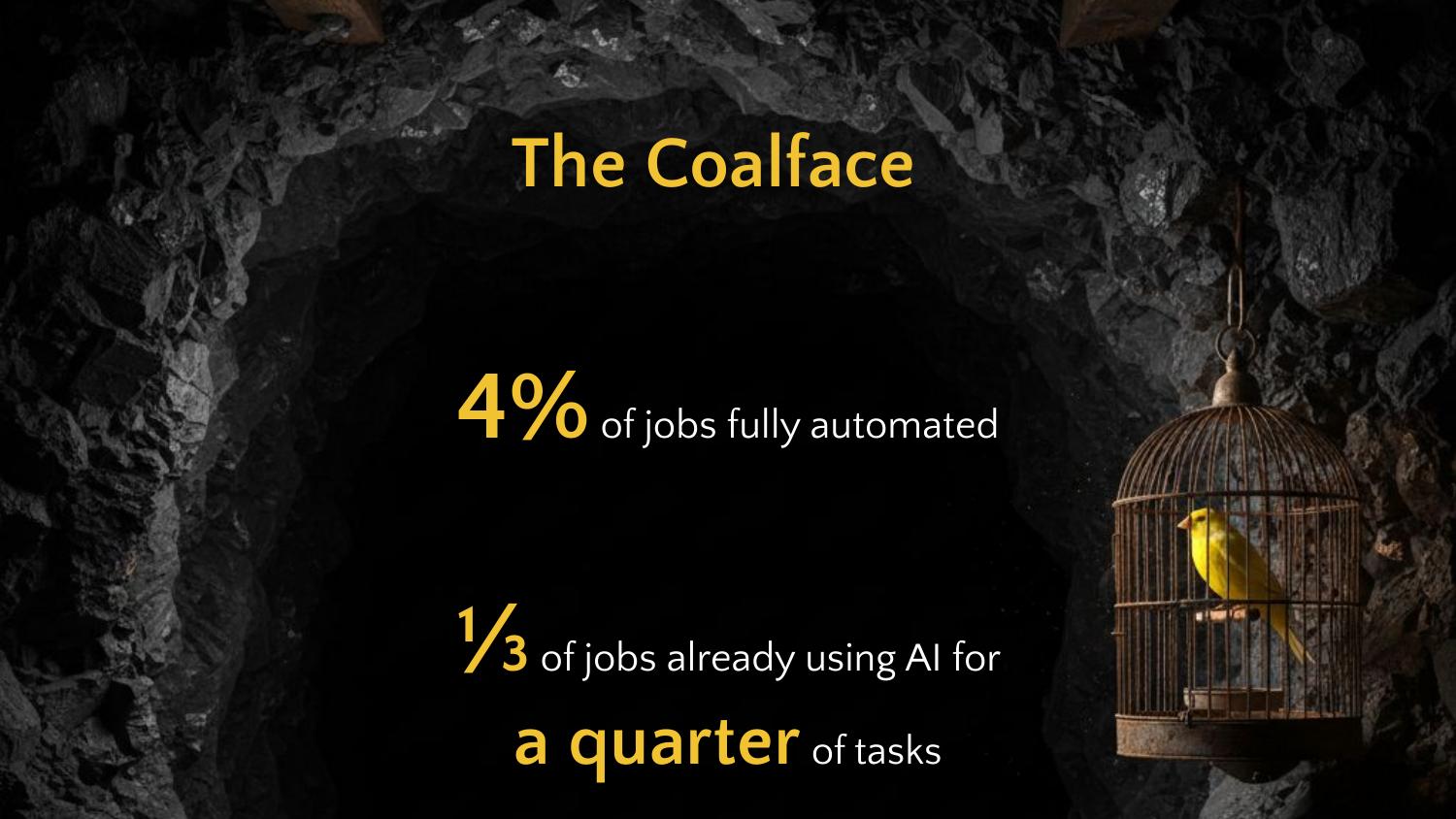
This is the coalface of AI. Actually, it’s really the canary in the coal mine.
Only 4% of jobs are fully automated by AI — but over a third already have a quarter of their tasks done by it. Careers don’t collapse overnight; they disappear bit by bit.
Some new jobs will emerge — they always do. But they’ll be the domain of the most intellectually elite, who can direct AI better than AI can direct itself.
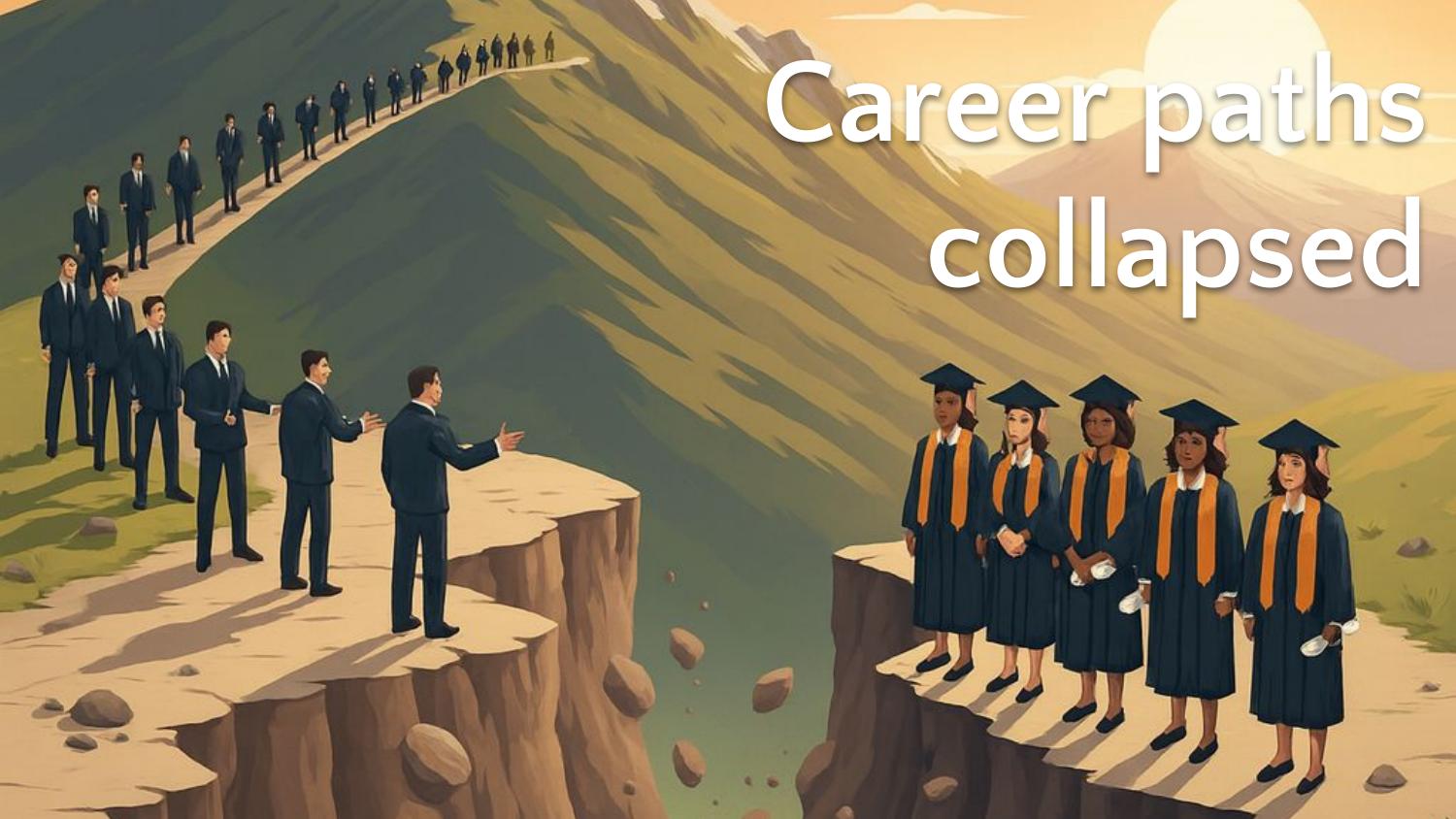
Meanwhile, career paths are collapsing. If graduates can’t cut their teeth, how do they ever become senior engineers or lawyers? We’re snapping the pipeline that develops future talent.

And this isn’t just Irish. Goldman Sachs predicts 300 million jobs in the US and Europe will be automated or transformed by AI. The World Economic Forum found 40% of employers expect to cut staff where AI can automate. Almost half of Gen Z say they already feel their degree is worth less because of AI.
And let’s address the common objection: hasn’t every wave of automation just pushed workers into higher‑value jobs? Historically, yes. Machines displaced muscle, and people moved up the chain to knowledge work. But it’s not realistic to expect people to get better at knowledge work faster than AI. It’s getting smarter faster than us. The old strategy of education and reskilling probably won’t save us again.
Let’s think about capital flows. What happens when work is replaced with API calls to a foreign AI providers? Capital that used to be spent on wages flows straight out of the economy.

The Asterès report found that Europe is bleeding €264 billion a year to foreign tech providers, who provide the digital underpinnings of business, government, communications and media. AI will make this much worse.
AI could massively shrink our tax base. As it replaces labour, PAYE shrinks – starting with high earners. When businesses pay for their AI bills to US companies, Corporation Tax receipts shrink. The same phenomenon that may drive unemployment could simultaneously sabotage our ability to fund social welfare. The wealth redistribution engine may stop turning.

Marx framed society in terms of capital and labour. For generations, most people have funded their lives in one of three ways: through social support, through their labour, or by owning assets that generate rent. AI diminishes the opportunity for labour, and robotics may ultimately finish the job. In that future, everyone without assets will depend on the social safety net. That’s a whole new kind of society and economy that we need to prepare for.
We need to urgently plan to economically participate in the future AI economy, if for no other reason than to ensure we have a tax base to fund something like universal basic income.
So where do we build natural advantages?
First: energy. We already host the data centres of the digital economy. We could host the inference centres of the AI economy. We have the expertise, supply chains and abundant wind. But we don’t have the energy infrastructure. Our grid constraints are forcing us to choose between digital infrastructure and housing.
Data centres already consume 21% of Ireland’s electricity. In Dublin, that rises to 80%. Amazon recently pulled a $300m data centre investment near the M50 because they couldn’t get an electricity connection - a terrible embarrassment for Ireland. Meanwhile, fourteen percent of generated wind power was wasted last year because the grid couldn’t carry it.
AI craves clean, cheap, renewable energy. We have it, but we need to deliver it. We should aim to be able to power the largest data centres in the world. If we can’t expand grid capacity and clean energy, the next generation of AI infrastructure will invest into the UK, France or the Nordics instead.
We can fix this. We need to accelerate wind, overhaul planning, add storage, build interconnectors. We need to cut across departments and make this happen. And we need as a society to be able to talk about nuclear and evaluate modular nuclear reactors.
The fundamental input into AI is energy. We can be a leader by hosting AI infrastructure on clean Irish energy. AI creates a strong economic alignment to build this infrastructure for the first time. We just need to facilitate it instead of blocking it.
But infrastructure isn’t only about steel and copper. It’s also about rules. Ireland has a chance to stand out by creating a regulatory environment that is clear, pragmatic, and supportive. I doubt this will be solely solved by any “sandbox” that is operated by a regulatory body. Let’s let the regulators focus on policing compliance, and provide separate and abundant support to our own companies and to others that want to grow in Ireland. Let’s recognise that the EU’s instinct to “lead by regulation,” tends to inadvertently shackle our own innovators while doing little to restrain global giants. Ireland can show a better path: regulatory clarity coupled with proactive support.
We are uniquely advantaged to provide both physical and regulatory infrastructure. If we get it right, we can anchor ourselves as a trusted hub in the global AI economy.
The disruption of AI is bigger than economics - it’s geopolitics.
AI is the new frontier technology. It’s a race for the means of production of knowledge and innovation itself. The United States and China are battling for supremacy. Europe is scrambling for a distant third or fourth.
And AI isn’t just about jobs or productivity. It’s about truth itself.
We’ve already seen deepfakes: President Zelenskyy “calling on troops to surrender.” AI-generated news anchors pushing Russian and Chinese propaganda. European firms losing tens of millions to deepfake video calls impersonating executives.
A few years ago this would have been science fiction, but it’s happening now. And if we don’t build resilience, it will undermine our democracies, our businesses, and our security.
Ireland, as a second home to the major tech players, is sitting at the epicenter. That’s an opportunity — but also a responsibility.
But now, our window of opportunity is closing.
Other small nations are already moving. Finland trained 2% of its population in AI basics. Singapore runs national AI bootcamps. Estonia is weaving AI into its state infrastructure.
Meanwhile, Europe risks making the same mistake it did with the digital revolution, as called out in the Draghi report — watching others build, while we regulate.
If we repeat that mistake, we will lose our seat at the global table, and the EU may lose its relevance not just in the world, but to all its own member states and citizens.
So what do we do? Three things.

-
Establish a permanent body responsible for driving AI. An AI strategic agency, or even a Department of AI. Not an advisory group of volunteers like the one I sit on, and not a regulator. A resourced body designed to help coordinate a whole-of-government plan to drive responsible but rapid AI adoption throughout the economy and society, ranging from energy to education to enterprise.
-
Create an AI Observatory. Real-time leading indicators, not trailing data delivered years too late. Track how AI is impacting jobs, capital flows, education, security in the sectors that are affected first — and give policymakers the facts as they happen.
-
Lead by Convening. In July 2026, we will assume the EU Presidency. That’s our moment to host an international AI summit here in Ireland — bringing together the leader of the global tech firms who call Ireland a second home, and the political leadership of Europe. We can set the agenda for how Europe responds to AI — on energy, security, education, and democracy.
Ireland knows how to reinvent itself. From a poor, protectionist backwater to a global tech hub — we know how to create opportunity for ourselves.
Now we face a new existential challenge - both as a small nation, and as a global voice in the EU.
As a tech founder, I see first-hand how AI is changing jobs and business models. As an AI council member and a citizen, I see the risks for government and society.
The disruption is here. The opportunity is here. The window is closing. I really want Ireland to prosper and for the EU to survive and to thrive.

So the question is simple: Do we want to be a consumer at the receiving end, or a leader shaping the future of AI in Europe?
The time to decide is now.
Thank you.